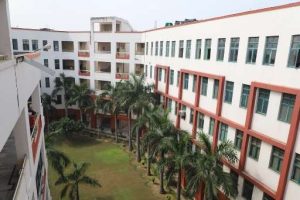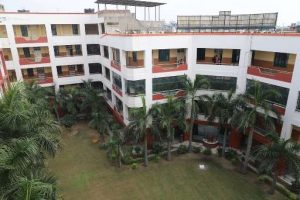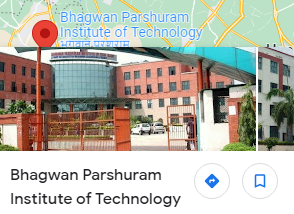Program Outcomes (POs)
Engineering Graduates will be able to:
- Engineering knowledge : Apply knowledge of mathematics, science, engineering fundamentals, and an engineering specialization to the solution of complex engineering problems.
- Problem analysis: Identify, formulate, review research literature, and analyze complex engineering problems reaching substantiated conclusions using first principles of mathematics, natural sciences, and engineering sciences.
- Design/development of solutions: Design solutions for complex engineering problems and design system components or processes that meet specified needs with appropriate consideration for public health and safety, and the cultural, societal, and environmental considerations.
- Conduct investigations of complex problems: Use research-based knowledge and research methods including design of experiments, analysis and interpretation of data, and synthesis of the information to provide valid conclusions.
- Modern tool usage: Create, select, and apply appropriate techniques, resources, and modern engineering and IT tools including prediction and modeling to complex engineering activities with an understanding of the limitations.
- The engineer and society: Apply reasoning informed by the contextual knowledge to assess societal, health, safety, legal and cultural issues and the consequent responsibilities relevant to the professional engineering practice.
- Environment and sustainability: Understand the impact of the professional engineering solutions in societal and environmental contexts, and demonstrate the knowledge of, and need for sustainable development.
- Ethics: Apply ethical principles and commit to professional ethics and responsibilities and norms of the engineering practice.
- Individual and team work: Function effectively as an individual, and as a member or leader in diverse teams, and in multi-disciplinary settings.
- Communication: Communicate effectively on complex engineering activities with the engineering community and with society at large, such as, being able to comprehend and write effective reports and design documentation, make effective presentations, and give and receive clear instructions.
- Project management and finance: Demonstrate knowledge and understanding of the engineering and management principles and apply these to one’s own work, as a member and leader in a team, to manage projects and in multi-disciplinary environments.
- Life-long learning: Recognize the need for, and have the preparation and ability to engage in independent and life-long learning in the broadest context of technological change.
Program Educational Objectives (PEOs)
PEO1:Graduate will have the fundamental and advance knowledge in Mathematics, Science, Electronics & Communication Engineering and design methodologies to successfully accomplish their professional career in industry as an Engineer, theoretically practically, in the field of Electronics & Communication Engineering, or become an enterpreneur.
PEO2:Graduate will have strong fundamental knowledge in specialized areas of Electronics & Communication Engineering to contribute towards research and developments through paper publications, projects and pursue higher studies in their specialized fields.
PEO3:Graduate shall learn all interpersonal skills and inculcate sense of social responsibilities and environmental concerns so as to make them good leaders and citizens.
Program Specific Outcomes (PSOs)
Applicable Upto Batch 2020
PSO1:Students will be capable of applying the knowledge of mathematics, applied science and allied Engg. Fields to solve real time problems in the field of electronics and communication Engg.
PSO2: Students will have the ability to design Electronics and Communication Systems and process to meet desire needs with realistic constraints.
PSO3:Students will be able to identified analyse, formulate and solve problems faced in the field of Analog and Digital Communication.
W.E.F. Batch 2021
PSO1: Students will have proficiency in grasping fundamental principles of Electronics & Communication Engineering and effectively applying them across diverse domains, including Semiconductors, Communications, Signal processing, Antennas, Networking, VLSI, Embedded systems, and becoming adept in the latest tools and methodologies employed in both research and industry.
PSO2:Student will foster critical thinking to evaluate engineering issues pertinent to Electronics & Communication Engineering through the cultivation of profound expertise and skills in the realms of fundamental sciences, engineering mathematics, and core engineering principles, enabling the resolution of intricate engineering dilemmas.
PSO3: Student will be able to acquire the skill to conduct independent research, seek innovative solutions, and make contributions to the progress of knowledge in specialized areas of electronics and communication engineering. Adhere to ethical principles in engineering practice, research, and innovation, while exemplifying a steadfast dedication to integrity, social responsibility, and sustainable development.





